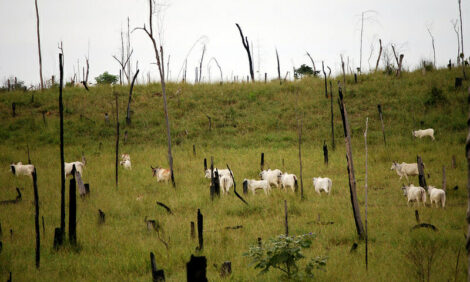



COOL Labelling Change Proposals Cause Divide
US – Industry factions have been caused by rule change proposals to Country-of-Origin Labelling (COOL) labeling laws.The changes would require meat to be labelled specifying the production steps of birth, raising and slaughter of the animal as proposed by the Office of Management and Budget.
The rule would also eliminate the allowance of meat commingling of different origins, providing consumers with more information about muscle covered commodities.
The National Farmers Union has welcomed the proposals stating that the ammendments would be consistent with legal analysis they commissioned in February.
"The proposed rule changes released by OMB are an excellent response to decisions by the World Trade Organization that called for changes to our COOL implementation,” said NFU President Roger Johnson. “By requiring further clarity in labels and stronger recordkeeping, the set of rules released today are a win-win for farmers, ranchers and consumers."
“Our members have worked tirelessly on this issue and will continue to support providing consumers with information on where their food comes from. NFU will offer supportive comments and I urge our members and the general public to do the same.”
But National Cattlemen’s Beef Association President, Scott George said the proposed amendments will hinder US trading relationships because there is no regulatory adaptation that can bring the current COOL rule into World Trade Organisation Compliance.
“The proposed amendments will only further hinder our trading relationships with our partners, raise the cost of beef for consumers and result in retaliatory tariffs being placed on our export products,” said Mr George. “The requirement that all products sold at retail be labelled with information noting the birth, raising and slaughter will place additional recordkeeping burdens on processors and retailers, contrary to the administration’s assertion.
“Moreover, this combined with the elimination of the ability to comingle muscle cuts, will only further add to the costs of processing non-U.S. born, raised and slaughtered products.”
What will result is a growth in hesitancy and unfavourableness in the processing and treatment of foreign produce giving US trading partners a stronger case at the WTO, he concluded.
TheCattleSite News Desk


